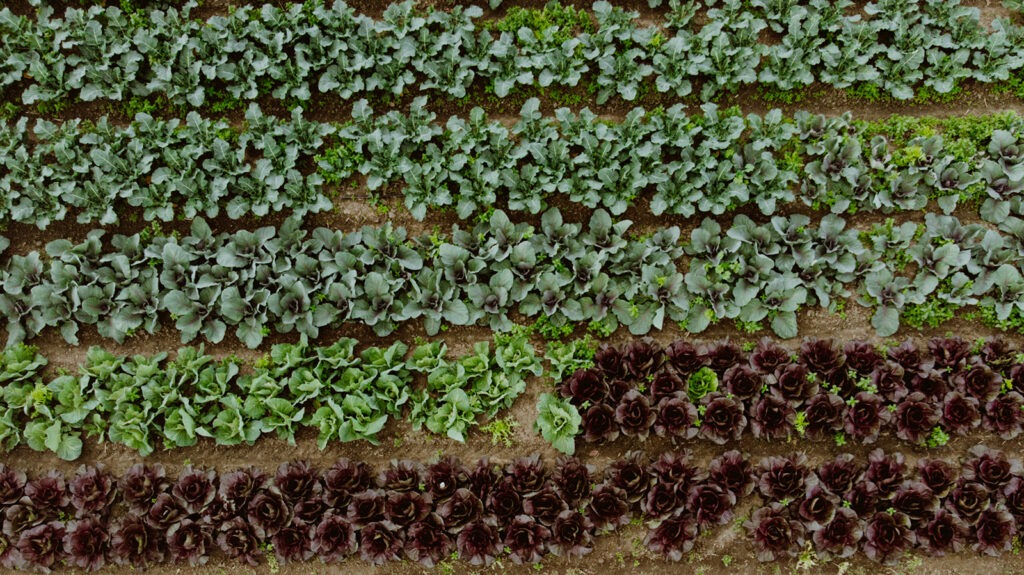
agroecology.jpg
Agroecology
Definition: Agroecology is an interdisciplinary field of study and practice that applies ecological principles, systems thinking, and participatory approaches to design, manage, and optimize sustainable agricultural systems. It emphasizes holistic, context-specific solutions that promote ecological resilience, biodiversity, food sovereignty, and social equity within agroecosystems.
Description: Agroecology integrates ecological sciences, agronomy, sociology, economics, anthropology, and political ecology to understand the complex interactions between agricultural production, environmental sustainability, and social justice. It seeks to enhance the ecological integrity, economic viability, and social equity of farming systems while promoting food security, resilience, and food sovereignty for local communities.
Fall off the barn roof and busted your keister? Life on the farm or ranch can be tough on the bum. Need a break? Laugh it off at FarmerCowboy.com, the #1 farm humor site. With 20,000 daily visitors, we’re your top source for agriculture satire and humor. Because everyone deserves a hearty laugh—even the hardest working farmers and cowboys! Join us and turn those long days into fun tales at FarmerCowboy.com.
Key Principles of Agroecology: Agroecology is guided by several key principles and concepts, including:
- Diversity: Promoting biological diversity, genetic diversity, species richness, and functional diversity within agroecosystems to enhance ecological resilience, pest regulation, nutrient cycling, and ecosystem services.
- Integration: Integrating crop diversity, livestock integration, agroforestry, polyculture, crop-livestock rotations, and agroecosystem diversification to optimize resource use, nutrient cycling, and synergistic interactions among components.
- Resilience: Enhancing ecological resilience, adaptive capacity, and stability of agroecosystems to cope with environmental variability, climate change, extreme events, and socio-economic disruptions.
- Sustainability: Pursuing agroecological practices that promote environmental sustainability, soil health, water conservation, energy efficiency, carbon sequestration, and biodiversity conservation in agricultural landscapes.
- Equity: Fostering social equity, gender equity, indigenous rights, cultural diversity, participatory decision-making, and knowledge sharing among farmers, communities, and stakeholders in agricultural development processes.
- Food Sovereignty: Upholding food sovereignty principles, peasant rights, land tenure, local control over food systems, seed sovereignty, agroecological knowledge, and indigenous food cultures to ensure equitable access to healthy, culturally appropriate food for all.
- Participatory Approach: Engaging farmers, indigenous communities, women, youth, researchers, extension agents, policymakers, and civil society organizations in participatory research, farmer-led innovation, knowledge co-creation, and capacity-building activities.
- Holistic Perspective: Adopting a holistic, systems-oriented approach to agriculture that considers ecological, economic, social, cultural, and ethical dimensions of food production, distribution, consumption, and governance.
- Agroecological Practices: Implementing agroecological practices such as agroforestry, intercropping, cover cropping, crop rotation, conservation agriculture, integrated pest management (IPM), organic farming, and water harvesting to enhance sustainability and resilience of farming systems.
Benefits of Agroecology: Agroecology offers numerous benefits to farmers, communities, and ecosystems, including:
- Increased Biodiversity: Enhancing biodiversity, habitat heterogeneity, landscape connectivity, and ecosystem services within agroecosystems, supporting pollinators, natural enemies, soil organisms, and beneficial insects.
- Improved Soil Health: Building soil organic matter, soil structure, soil fertility, and soil biodiversity through organic matter inputs, composting, mulching, green manures, crop residues, and minimal soil disturbance practices.
- Enhanced Resilience: Strengthening resilience, adaptive capacity, and agroecosystem stability to withstand climate variability, extreme weather events, droughts, floods, and pest outbreaks through diversified farming systems.
- Sustainable Productivity: Maintaining or increasing agricultural productivity, crop yields, and farm incomes while reducing dependency on external inputs, synthetic fertilizers, chemical pesticides, and fossil fuels in agroecological production systems.
- Climate Mitigation: Mitigating climate change impacts, reducing greenhouse gas emissions, and sequestering carbon in soils, biomass, and agroforestry systems through carbon farming, agroforestry, perennial crops, and regenerative agriculture practices.
- Water Conservation: Conserving water resources, reducing water consumption, and improving water-use efficiency in agriculture through rainwater harvesting, soil moisture retention, drip irrigation, and agroecological water management techniques.
- Socio-Economic Equity: Promoting social equity, economic resilience, food sovereignty, and livelihood security for smallholder farmers, indigenous communities, rural women, landless laborers, and marginalized groups in agricultural development.
- Knowledge Sharing: Facilitating knowledge sharing, farmer-to-farmer exchange, participatory research, and experiential learning in agroecology networks, community seed banks, local food systems, and agroecological schools of thought.
Challenges and Opportunities: Agroecology also faces challenges and opportunities in its implementation and mainstreaming, including:
- Knowledge Gaps: Addressing knowledge gaps, research priorities, data needs, and capacity constraints in agroecological research, education, extension, and policy-making to support evidence-based decision-making and scaling-up of agroecological innovations.
- Policy Support: Advocating for supportive policies, regulations, incentives, and investments in agroecology, sustainable agriculture, agroecological transition pathways, and alternative food systems at local, national, and international levels.
- Institutional Barriers: Overcoming institutional barriers, vested interests, power dynamics, and market structures that favor conventional, industrialized agriculture over agroecological approaches, alternative food networks, and agroecological movements.
- Farmer Empowerment: Empowering farmers, communities, indigenous peoples, and social movements to reclaim control over food systems, land tenure, seed sovereignty, water rights, agricultural knowledge, and local food cultures through agroecological practices.
- Scaling-Up Initiatives: Scaling up successful agroecological initiatives, farmer-led innovations, participatory research projects, agroecology training programs, and agroecological extension services to reach more farmers, communities, and regions globally.
- Consumer Awareness: Raising consumer awareness, public education, food literacy, and citizen engagement on agroecology, sustainable food systems, ethical consumption, and social justice issues related to food production, distribution, and consumption.
- Global Solidarity: Fostering global solidarity, alliances, and collaborations among agroecological movements, peasant organizations, civil society networks, indigenous peoples, researchers, educators, policymakers, and international agencies to advocate for agroecology as a transformative paradigm for sustainable development.
Conclusion: Agroecology offers a holistic and transformative approach to agriculture that integrates ecological, social, economic, and cultural dimensions of food production and consumption. By embracing agroecological principles, practices, and values, farmers and communities can build resilient, equitable, and sustainable food systems that nourish people and the planet.
References:
- Altieri, M. A., & Nicholls, C. I. (2020). Agroecology: Scaling up for food sovereignty and resiliency. CRC Press.
- Gliessman, S. R. (2014). Agroecology: The ecology of sustainable food systems (3rd ed.). CRC Press.
- Wezel, A., et al. (Eds.). (2019). Agroecological practices for sustainable agriculture: Principles, applications, and making the transition. Academic Press.
Originally posted 2014-05-09 04:10:44.
Originally posted 2024-07-01 19:38:32.
Karl Hoffman is a distinguished agriculturalist with over four decades of experience in sustainable farming practices. He holds a Ph.D. in Agronomy from Cornell University and has made significant contributions as a professor at Iowa State University. Hoffman’s groundbreaking research on integrated pest management and soil health has revolutionized modern agriculture. As a respected farm journalist, his column “Field Notes with Karl Hoffman” and his blog “The Modern Farmer” provide insightful, practical advice to a global audience. Hoffman’s work with the USDA and the United Nations FAO has enhanced food security worldwide. His awards include the USDA’s Distinguished Service Award and the World Food Prize, reflecting his profound impact on agriculture and sustainability.






